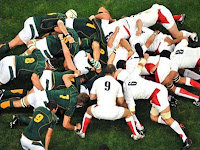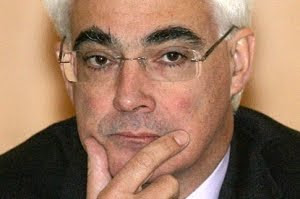Plato, through Socrates, described it thus;
...a charming form of government, full of variety and disorder, and dispensing a sort of equality to equals and unequal alike.
Or as I once remarked to a friend;
The thing with democracy is that ultimately it’s about allowing morons to vote.Plato’s ideal system, an aristocracy led by wise men that are (crucially) reluctant to lead, seems inherently dangerous given our understanding on the ability of power to warp the best of intentions - not to mention the scarcity of wise men. So unless we subscribe to this utopian vision or perhaps the benefits of a benign autocracy (and I’m surprised to find there are many that do) we are, for all its perceived limitations, left with democracy; though are these limitations really a weakness?
One might think so since the BBC have invited Nick Griffin, leader of the BNP and a holocaust denier, to appear on Question Time; their most prominent platform for political debate. However such people are a fact of life whatever the system; brushing repulsive individuals under the carpet not only disenfranchises, it’s counterproductive. Who can be persuaded the error of their ways by being denied the right to speak?
I can think of few people who deserve to be ridiculed more but a more constructive act might be to engage them in debate or, to use language his party would understand, debate the sh*t out of them. There are undoubtedly dangers; putting Griffin in a civilised environment may result in some believing the participant himself to be civilised. In addition I would hope the other panellists can avoid indulging in a game of “who hates the racist the most”; it’s a trap the BNP would be delighted to spring.
Yet despite these risks we must engage in debate; not necessarily because we hope to change minds, though occasionally we may, but because this is how a society grows. If unwilling to face up to its more unpleasant members then how can it be worth fighting for? An unchallenged society is doomed to failure.








